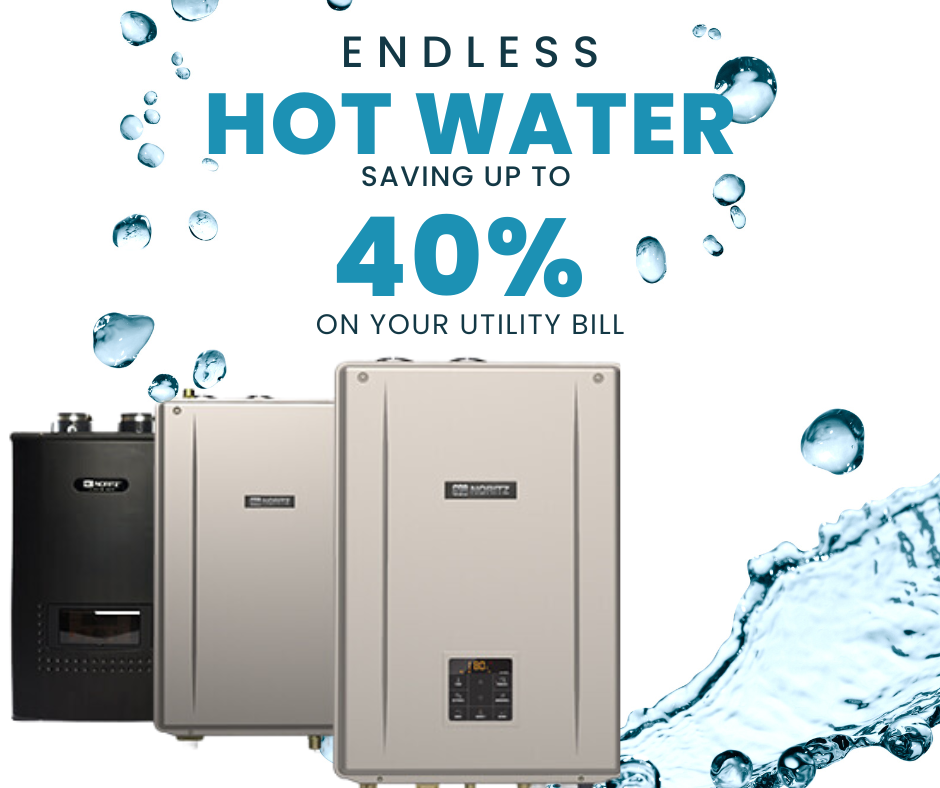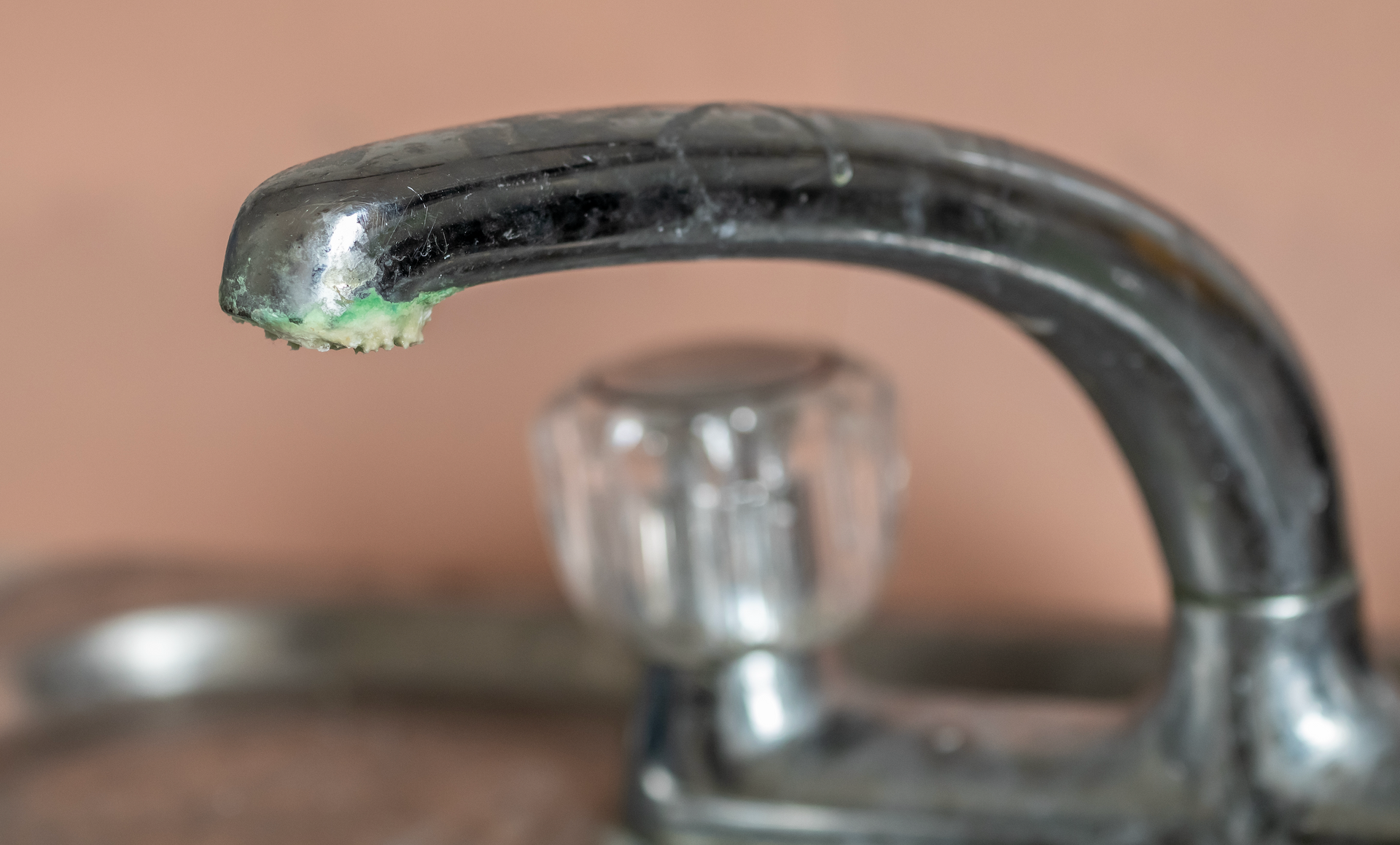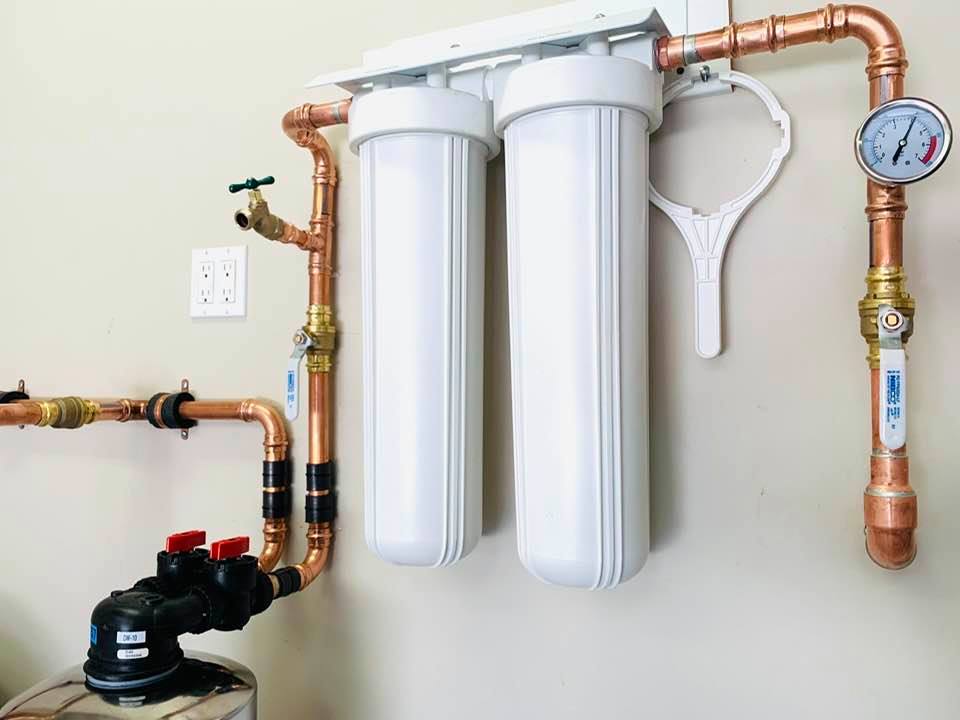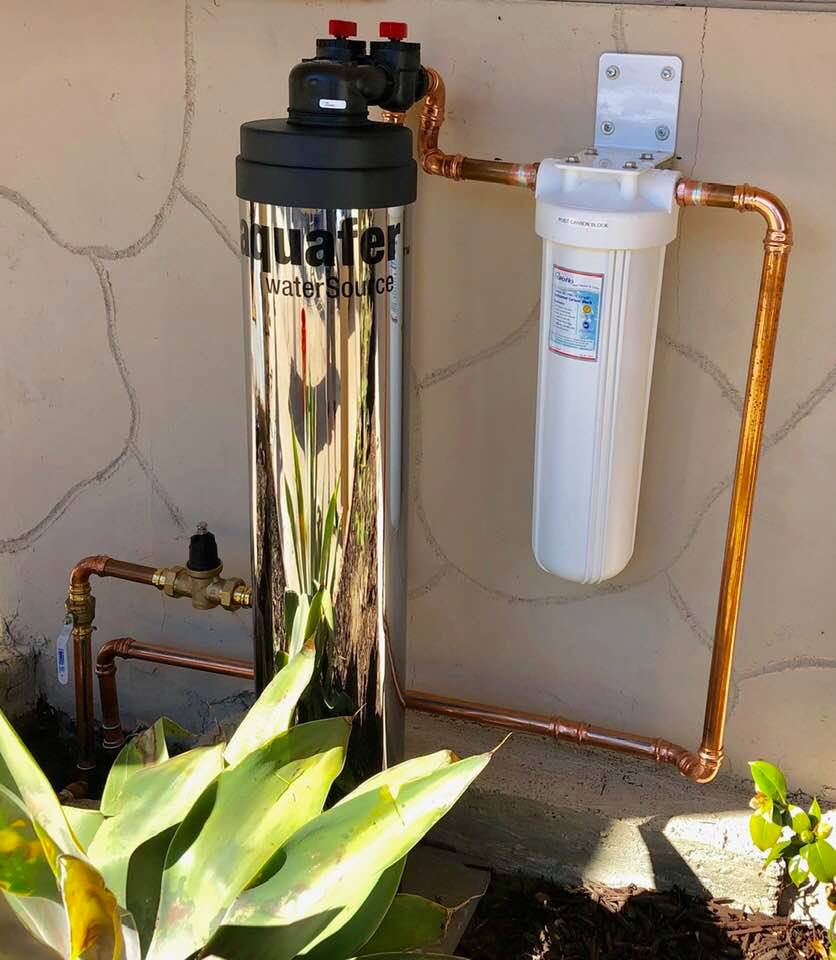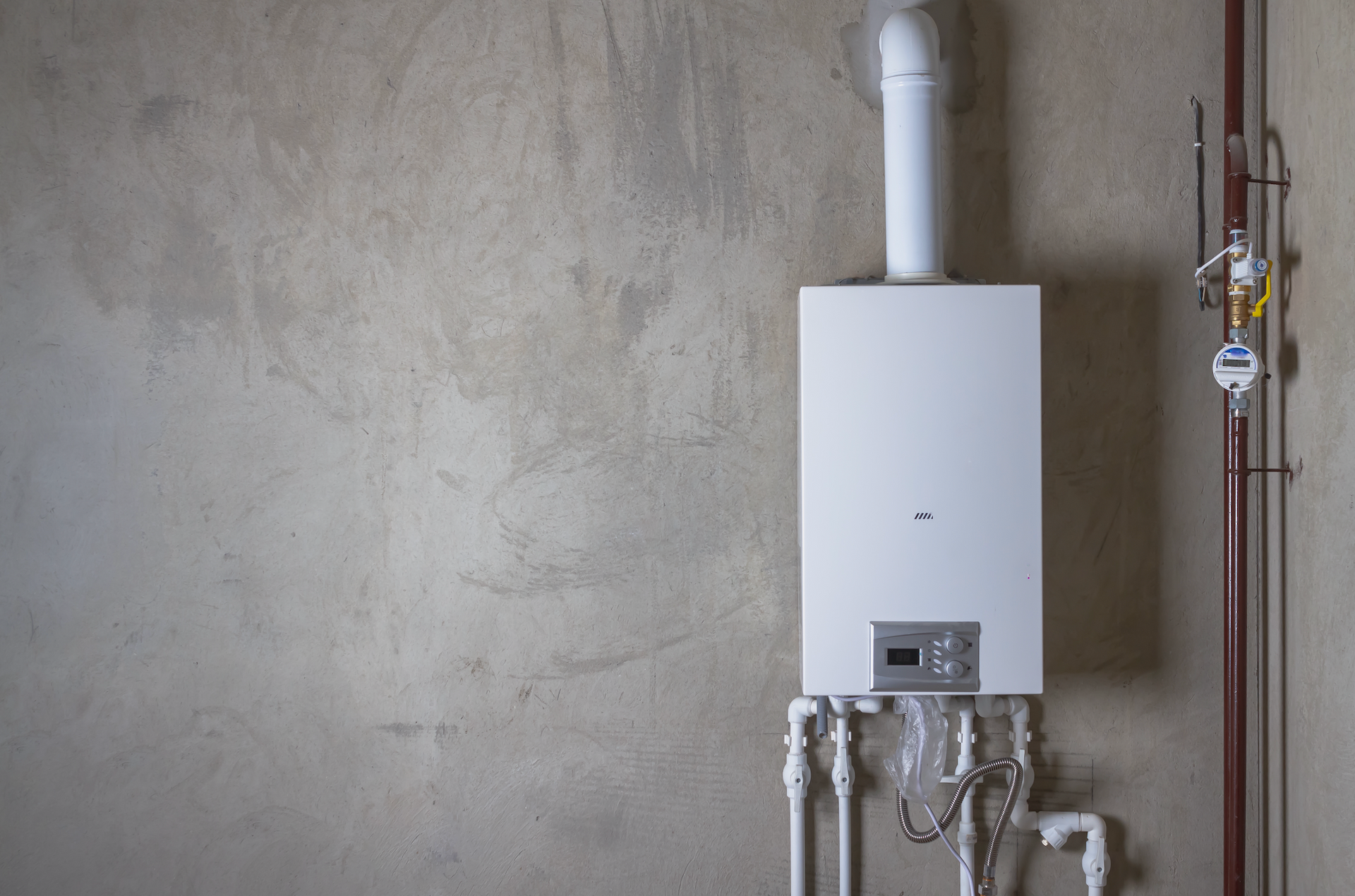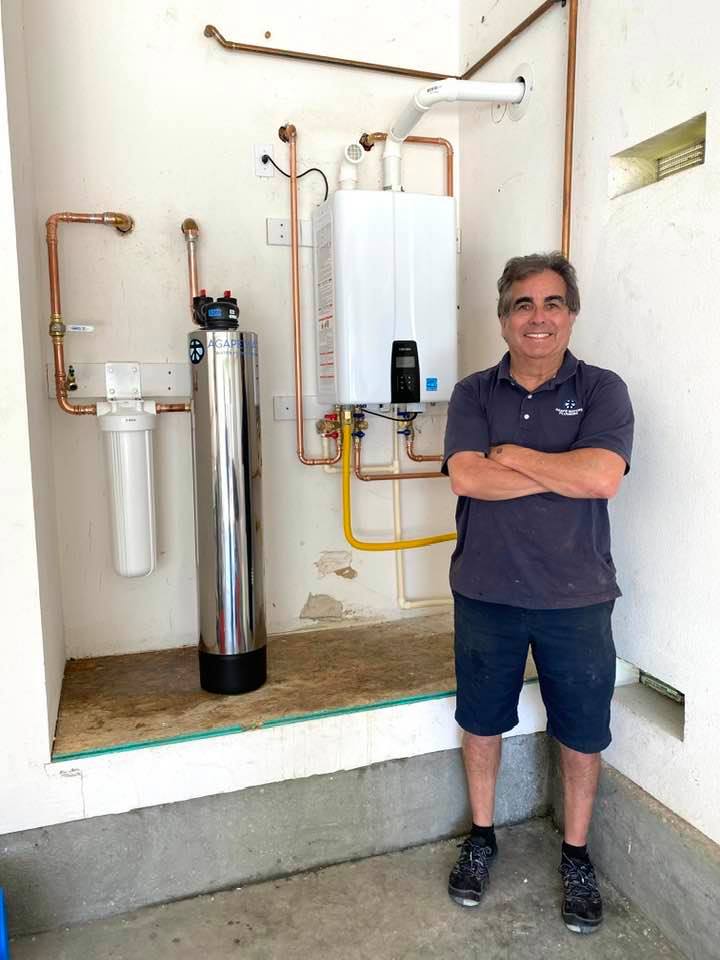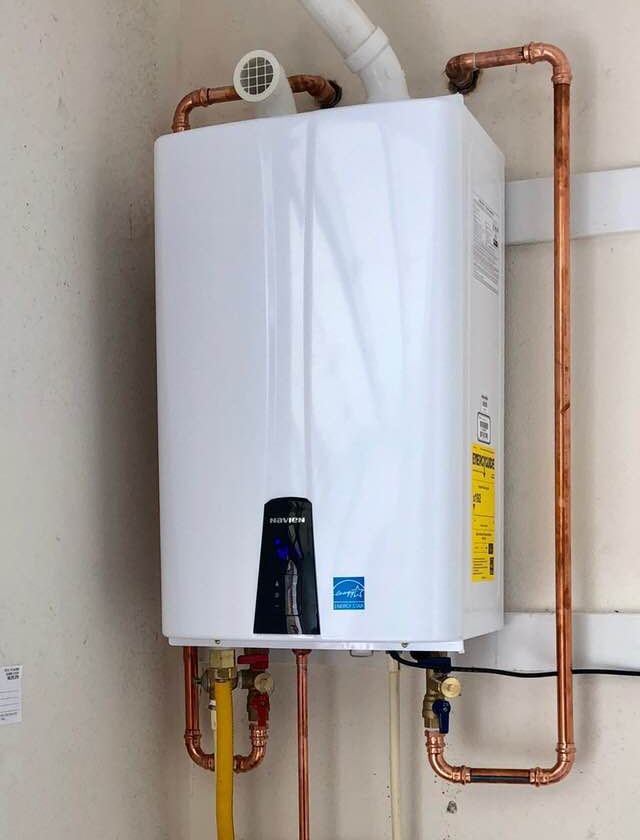Go Green with Tankless Water Heater's Environmental Benefits
On Demand Water Heaters Delivering Energy Efficiency & Cost Savings

Imagine turning on the tap and getting hot water instantly, without wasting a drop. While thats the commonly understood reality with tankless water heaters, with this article we're going to go deep into the Environmental Benefits of Switching to a Tankless Water Heater.
Tankless Water Heaters don't just just save space and provide endless hot water...they have become critical components of any household that is concerned about energy efficiency and slashing their carbon footprint.
We'll talk about the elegance of on-demand water heating and how they eradicate idle energy loss, diminishing unnecessary power consumption. We also cover how making this switch can not only keep more money in your pocket, but also significantly reduce environmental impact.
Finally, for those pondering an enhancement to their domicile's worth and simultaneously yearning to benefit Earth, linger a moment longer. This transition might be what you need to edge closer to an eco-friendly lifestyle.
Table Of Contents:
- Is It Better to Switch to a Tankless Water Heater?
- Energy Efficiency Unpacked
- Environmental Impact Reduction
- What are the Benefits of Switching to a Tankless Water Heater?
- Energy Efficiency Unpacked
- How Much Money Can I Save by Switching to a Tankless Water Heater?
- Space-Saving Design & Installation Benefits
- Enhancing Home Value with Eco-Friendly Upgrades
- Market Trends Toward Sustainability
- Wrapping Up
Is It Better to Switch to a Tankless Water Heater?
Tankless water heaters have become increasingly known for their efficiency and environmental benefits and have been popularity among Southern California homeowners. These units can be up to 34% more energy-efficient than traditional models. This means they only heat water when you turn the tap on, avoiding the constant energy drain associated with keeping a large volume of water hot at all times.
By heating water directly without the use of a storage tank, tankless units eliminate standby heat loss that plagues traditional tank models. Imagine not having to waste energy continuously heating a giant pot of water 24/7; that's what going tankless offers. Reports from the Department of Energy reinforce the environmental benefits of switching to a tankless water heater.
Environmental Impact Reduction
Switching to a tankless water heater notably diminishes your environmental impact by lessening the strain on energy facilities and curtailing emissions harmful to the atmosphere. With less material used in manufacturing compared to bulky tanks and increased longevity—lasting five to ten years longer—they're an environmentally friendly choice for modern homes.
What are the Benefits of Switching to a Tankless Water Heater?
Imagine never running out of hot water while also saving money and being kind to the planet. That's what on-demand water heaters offer. Unlike traditional tank water heaters that constantly heat a large volume of water, electric tankless models heat water only when you turn on the tap. So, this translates to them not only being super savvy with energy but also ultra-handy for Southern California living spaces where every inch counts.
Energy Efficiency Unpacked
Tankless units are champions of efficiency, able to save up to 34% more energy compared to their bulky predecessors. How? By eliminating standby losses associated with keeping a storage tank full of hot water at all times. Instead, these savvy devices use an electric heat exchanger that quickly heats cold water as it flows through on its way to your shower or sink.
Adopting this approach, which leverages electricity solely upon need, not only slashes needless energy consumption but also diminishes your environmental impact—a dual benefit recognized by the Department of Energy for its potential to usher in substantial economic and ecological savings.
How Much Money Can I Save by Switching to a Tankless Water Heater?
Southern California homeowners, switching to a tankless water heater is not just a step towards sustainability; it's also a smart financial move. Opting for this upgrade could mean saving up to 40% on utility costs each year, blending fiscal prudence with eco-friendliness.
These savings stem from the unique way tankless systems heat water—only when you need it. Unlike traditional storage water heaters that continuously maintain a large volume of hot water, tankless models eliminate standby losses. This reduction in energy waste directly translates into lower monthly expenses for heating water.
To back this up, a survey by Realtor.com found that eco-friendly home upgrades are not only desired but expected by today’s homeowner. So, while saving money each month, you're also investing in your property's future market appeal with an environmentally friendly upgrade.
Space-Saving Design & Installation Benefits
Within our communities, square footage is often at a premium. Homeowners who are dealing with limited space will find tankless water heaters, known for their slender build and minimal footprint, to be a solution that maximizes the home's layout. These units are designed to be discreet yet powerful, offering hot water on demand without the bulky tank.
Their space-saving design is not just about looking good; it's practical too. By ditching the large volume of a traditional tank, these systems free up room for other uses—perfect for smaller Southern California homes where every square foot counts. This makes them an ideal choice for anyone trying to get the most out of their living area while still enjoying endless warm water.
Moreover, because tankless units use less material in manufacturing compared to storage water heaters, they're not only more efficient but also environmentally friendly. They heat water directly at the tap as needed, which means no energy waste from constantly heating a big tank of water. Adopting a tankless water heater not only trims down your energy bills and spares room but also lessens your environmental impact.
Enhancing Home Value with Eco-Friendly Upgrades
Market Trends Toward Sustainability
In the heart of Southern California, where sunshine reigns supreme and environmental consciousness is more than just a trend, homeowners are discovering that going green doesn't just save the planet—it boosts their home's market value too. A study by Sopher Sparn Architects reveals a compelling figure: environmentally sustainable homes have sold for 23 percent more than their less eco-friendly counterparts in markets like Washington D.C.
This surge in value can be partly attributed to an increased buyer interest in eco-friendly households. Modern purchasers are not merely in pursuit of a dwelling; they're actively seeking out abodes that promise a more wholesome lifestyle alongside diminished environmental impacts. By integrating on-demand water heaters, you're not only responding to the burgeoning interest but also branding your estate as a visionary asset.
Delve into the detailed examination of how eco-friendly enhancements boost property allure in today's market. Implementing these savvy upgrades proves essential for homeowners aiming to strike a balance between eco-friendliness and financial gain.
Wrapping Up
The environmental benefits of switching to a tankless water heater are as significant as the potential financial benefits. It's all about reducing unnecessary power use and decreasing your environmental impact.
You now know that heating water on-demand means saying goodbye to standby losses. And of course, the savings on utility expenses is an added benefit.
Thinking about space? Tankless units have got you covered with their compact design. Moreover, opting for a tankless water heater might elevate your property's appeal and worth among environmentally aware purchasers.
Opting for a tankless model is not only savvy but also paves the way for future savings and environmental preservation. It’s clear—the environmental benefits of switching to a tankless water heater are too good to ignore.

